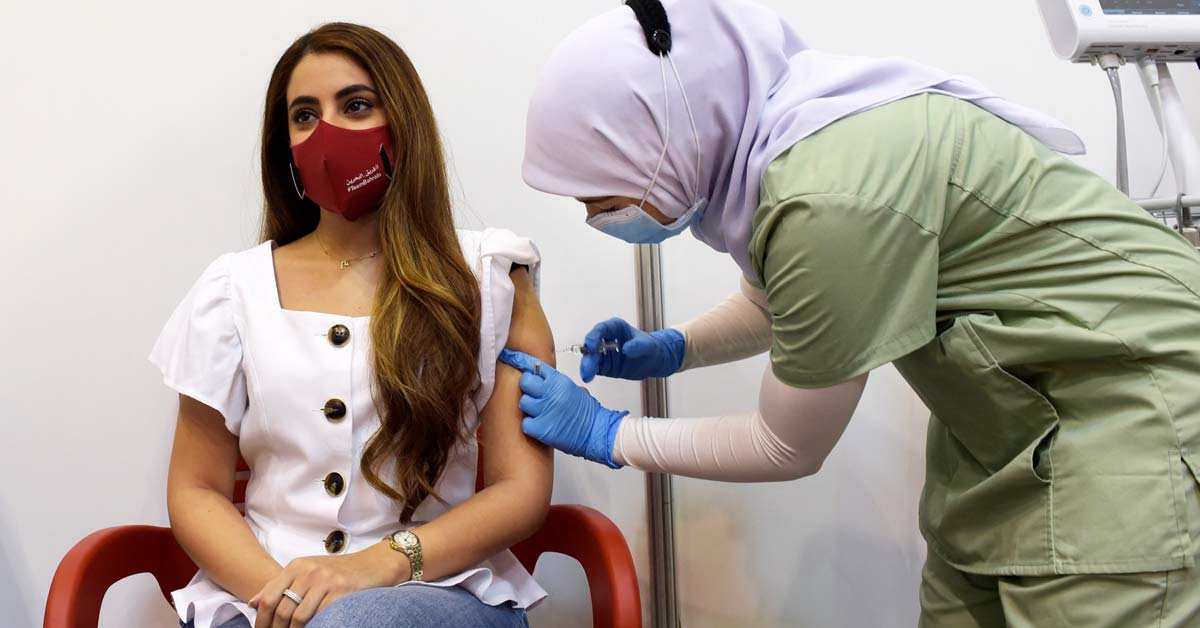What used to be a mysterious new variant first detected in the United Kingdom (UK) is now the most dominant coronavirus strain in the United States (US).
And unlike the original strain of the novel coronavirus, the more contagious B.1.1.7 strain is hitting young people particularly hard.
"(COVID-19) cases and emergency room visits are up," said Rochelle Walensky, director of the US Centers for Disease Control and Prevention (CDC).
"We are seeing these increases in younger adults, most of whom have not yet been vaccinated."
Now doctors say many young people are suffering COVID-19 complications they didn't expect.
And it's time to ditch the belief that only older adults or people with pre-existing conditions are at risk of severe COVID-19.
Young People
B.1.1.7 cases have now been reported in all 50 states, the CDC said.
"What we're seeing in a bunch of places now is sick, young people – hospitalised young people. Whereas earlier on in the pandemic, it was primarily older people," said Jonathan Reiner, a CNN medical analyst and professor of medicine and surgery at George Washington University.
"The reason for this might be as simple as the older population in this country has either been exposed to this virus, killed by the virus, or now vaccinated against the virus."
As of Saturday, more than 78 percent of people age 65 and over have received at least one dose of vaccine, and 60 percent have been fully vaccinated, according to CDC data.
"The unvaccinated – those are the people who are getting infected – we're seeing a large number of young people, and they're the ones we're seeing in hospitals now."
Emergency physician Megan Ranney, director of the Brown-Lifespan Center for Digital Health said she's also noticed a stark change in who's getting hospitalised.
"Looking at the week of 26 December or 2 January, age 65-plus would be, say, 3,000 (hospitalisations). And then everything else together is 3,000. More than 50 percent were age 65-plus."
But by 27 March, "it was about one-third (ages) 18 to 49 ... about one-third ages 50 to 64, and then about one-third 65-plus," Ranney said.
As an emergency room doctor, Ranney said she regularly sees young, previously healthy patients struggling with coronavirus.
"I see at least a few people on every ER shift that I work who are there because they are having persistent trouble breathing or other side effects as a result of COVID-19," she said.
Ranney said she generally defines "young people" as those under 50. But "no matter which age cut-off you use, right now, we're seeing more B.1.1.7 than the older variants."
"We're certainly seeing it more in 20s and 30s as well," she said. "And people in their 20s and 30s are less likely to be vaccinated and more likely to be out and about."
'COVID-19 Can Wreck Your Life'
As more young people get infected, doctors are worried they'll see more of a disturbing trend they've noticed for months – long-term complications.
"I cannot tell you how many people I've taken care of in the ER who are in their 20s, 30s and 40s, who are never sick enough to end up in the ER with COVID, but who now have long-lasting respiratory difficulties," Ranney said.
"Or they have persistent loss of taste and smell, and they're losing weight because there's no joy from eating. Or they have that kind of brain fog that we hear about with long COVID. And it's not universal. It's not every person who gets COVID who's going to get that. But there is the reality that this disease is not benign – regardless of whether they get hospitalised or are in the ICU," she said.
"So, I think there's this false sense of both 'I'm immune to it just because I'm young,' and 'Even if I catch it, I'll be fine.' You may be lucky. And that may be true, that if you catch it, you'll be fine. But there's also a chance that you won't."
Reiner said some long-haul symptoms in young people have lasted roughly a year now – "debilitating symptoms that have come in the aftermath of their coronavirus infection," he said.
"So, what I would say to young people is that COVID-19 doesn't have to kill you to wreck your life."
Spreading Among Children
It's not just young adults who are getting infected with this variant. More cases of B.1.1.7 are showing up among children, too.
"Absolutely, we are seeing a higher number of kids test positive for B.1.1.7 than we have seen for the other virus types," Ranney said.
"It's not necessarily that kids are more susceptible to B.1.1.7. But it's just that they're more likely to be exposed to it both, because they're out and about, and because this version is more transmissible."
While classroom learning is relatively safe when the right safety precautions are taken, health officials say after-school activities – such as youth sports and other extracurriculars – are causing more children to get COVID-19.
And while COVID-19 deaths among children are extremely rare, they have happened. – CNN
Related Articles:
